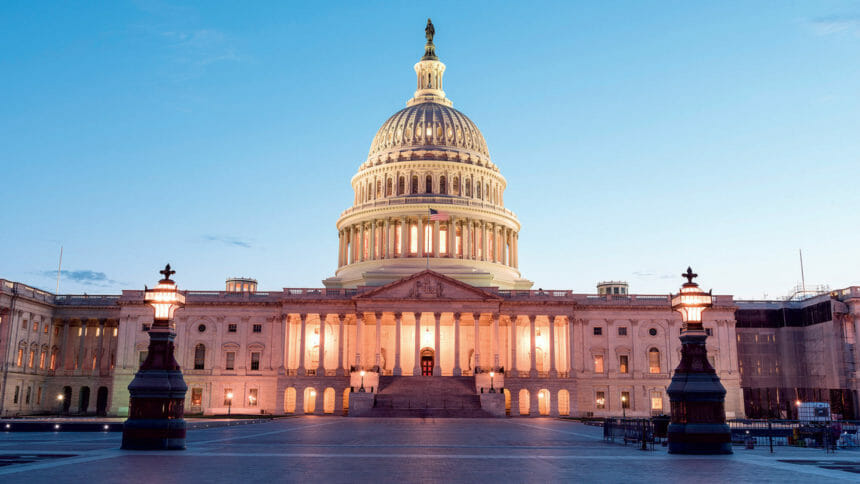
Editor’s note, Jan. 2: The president signed the bill into law on Dec. 31.
A bipartisan bill that authorizes $100 million in funding over five years to create a new public health infrastructure to combat Alzheimer’s disease is headed to the president’s desk after being passed Wednesday night by the House of Representatives.
“Today is a historic day in the fight against Alzheimer’s,” Alzheimer’s Association Chief Public Policy Officer Robert Egge said. More than half of the members of Congress — 58 senators and 254 congresspeople — co-sponsored the legislation, known as the Building Our Largest Dementia (BOLD) Infrastructure for Alzheimer’s Act, he said.
Sens. Susan Collins (R-ME), Catherine Cortez Masto (D-NV), Shelley Moore Capito (R-WV) and Tim Kaine (D-VA) had introduced the bill, S. 2076, in November 2017. The Senate Health, Education, Labor and Pensions Committee unanimously passed it Nov. 29, and the full Senate passed it by voice vote on Dec. 12.
Wednesday’s House vote was 361-3, with 68 representatives not voting. Reps. Justin Amash (R-MI), Tom McClintock (R-CA) and Mark Sanford (R-SC) voted against the bill. (Read Sanford’s thoughts on the bill here.)
The measure also was endorsed by dozens of organizations, among them AMDA – The Society for Post-Acute and Long-Term Care Medicine, the American Health Care Association / National Center for Assisted Living, Argentum and LeadingAge.
“Argentum applauds the action of the 115th Congress to help in further expanding our nation’s knowledge of Alzheimer’s disease and related dementias,” Argentum President and CEO James Balda said in a statement. “As scientists and doctors continue to search for a cure for this devastating disease, senior living communities continue to provide a professional, caring environment to care for seniors experiencing this condition.”
“I am proud of the overwhelming bipartisan support our legislation received in Congress and in communities across the nation,” Collins said. “BOLD brings us to the brink of a brighter day for Alzheimer’s, and I look forward to it being signed into law.”
Reps. Brett Guthrie (R-KY) and Paul Tonko (D-NY) had introduced the companion bill, H.R. 4256, in the House.
“Building on our success in past Congresses with the Alzheimer’s Accountability Act and the HOPE for Alzheimer’s Act, this bill represents another giant step forward, driving investments in Alzheimer’s infrastructure that will advance public health research and promote prevention, early detection and diagnosis all leading to lower costs and better care,” Tonko said. “I’m proud to celebrate this bill’s passage alongside my fellow Alzheimer’s champions and look forward to seeing this important legislation signed into law.”
The act authorizes $20 million annually over the next five years to establish:
- Alzheimer’s Disease and Related Dementias Public Health Centers of Excellence to promote Alzheimer’s disease and caregiving interventions as well as educate the public about Alzheimer’s disease, cognitive decline and brain health. The centers would implement the Centers for Disease Control and Prevention’s Healthy Aging Public Health Road Map.
- Cooperative agreements between the CDC and state health departments to help meet local needs in promoting brain health, reducing risk of cognitive decline, improving care for those with Alzheimer’s and other public health activities.
- Data grants to improve the analysis and timely reporting of data on Alzheimer’s, cognitive decline, caregiving and health disparities at the state and national levels.
The United States spends more than $277 billion per year, including $186 billion in costs to the Medicare and Medicaid programs. More than five million Americans have the disease. Current estimates are that the number of Americans with Alzheimer’s could almost triple to as many as 14 million by 2050, costing the country more than $1.1 trillion annually.
Actress Marcia Gay Harden, whose mother has Alzheimer’s disease, advocated for passage of the BOLD Act at a Senate Special Committee on Aging hearing in June. Collins chairs the committee, and Cortez Masto is a member.



